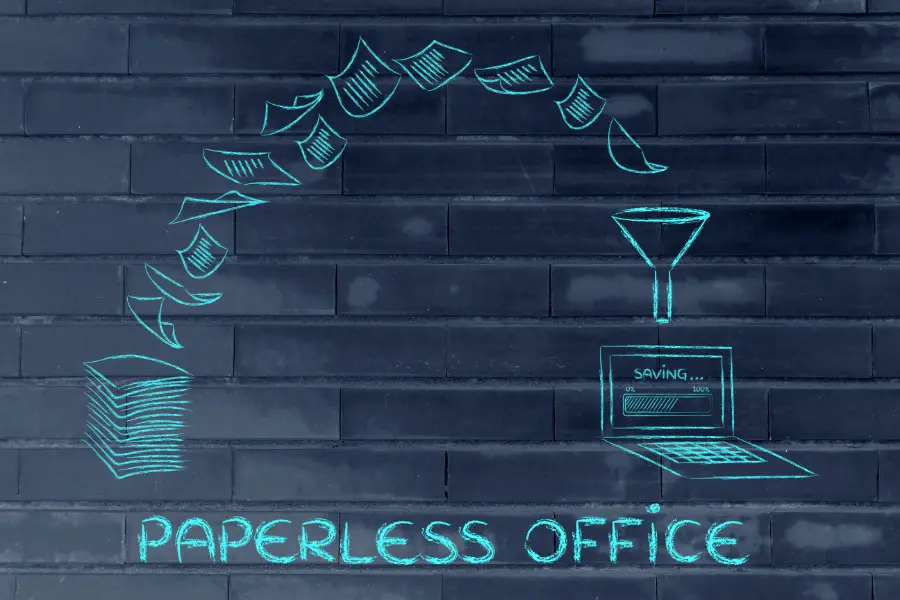Waste management has turned out to be an ongoing challenge for both new and existing companies. Besides accumulating the cost of disposing waste, companies are also running a risk of bad publicity and negative environmental impact. The issue of handling waste materials becomes complicated, especially for companies located within a city that takes the matter seriously.
This article will look at the best and the most straightforward ways a company can handle and reduce waste. It will also highlight the benefits of reducing waste materials, which you will learn if you read on.
How to Minimize Waste in the Workplace
Let’s face it; it’s hard to ignore that a good percentage of waste materials in urban centers come from businesses and companies. No matter how careful the company is, there will always be waste materials at the end of the day. However, the difference in the output is determined by the size of the company and its line of business. Digital companies produce less waste compared to manufacturing companies. Nonetheless, they each have a responsibility to keep the waste output to a minimum.
Although not all waste management guidelines can work with every company, there are basic but very effective waste management ideas that any company can adapt. They include:
Go Paperless
Companies around the country are making an effort to eliminate the use of paper in their workplace. While some, like Google, have succeeded, many are still struggling to integrate paperless ideas into their everyday business.
Paper contributes to nearly a third of everyday trash, and by eliminating its use, companies will manage to bring down a significant amount of waste they produce daily. The best ways to achieve this would include:
- Introducing whiteboards around the company offices
- Encouraging people to communicate electronically
- Upgrading to an electronic filing system
- Introducing paperless transactions, including invoices and receipts
Not only will going paperless help the company save some money, but it will also promote neatness, proper data security that you can backup, and real-time information sharing.
Manage the Food Waste
We all like to indulge in treats and tasty meals occasionally. However, have you ever accidentally knocked down a trash can in your office and saw all the food waste in there? Although the amount of food waste in an office is half that in our homes, it’s still a lot of waste to deal with every day. Most of the food waste comes from the kitchen, with people who carry their food and snacks contributing as well.
Installing a fridge and coolers in the office kitchen could help reduce the amount of food waste in the workplace. Another option is to encourage employees to reduce their waste contribution and only serve food they can finish. Also, it would help a lot to encourage the kitchen department to give out edible leftover food instead of throwing it away when no one in the office wants it. Such food can be packed and given to shelters, for instance.
Introduce Reusables in the Cafeteria
Apart from food waste, cafeterias and break rooms are a source of non-reusable waste such as plastic coffee cups and water bottles. They are also places with a lot of trash in a business workplace, and a lack of proper waste control would lead to more waste accumulating and turning the place into a mess.
One way of eliminating this waste is by introducing reusables such as coffee mugs and glasses that can be washed and reused by different people. If it’s impossible to have an entire supply of such items, try encouraging workers to carry similar items from home for their daily use.
By doing this, businesses have managed to cut down their waste products by half and turned the cafeterias and break rooms into clean areas where people can hang out.
Have a Central Area for Storing Office Supplies
Office supplies such as paper clips, scissors, pens, and pins are crucial for everyday use. However, they tend to spread around the office since everyone is using them, with a majority of them ending up in a trash can. While it’s not normal to come across a trash can filled with paper clips and scissors, it’s widespread for these items to be used in bulk, especially at a large company.
The best way to ensure such supplies are not misused or end up in a trash can more often is to have a central area where they can all be stored. There should also be a notice to workers that, whenever someone is done using any office item, they should return them to this common area, where someone else might use them.
The solution helps to reduce the total cost while also helping to control the amount of waste in a workplace.
Get Rid of Bottled Water
Plastic bottles are an environmental concern, given the impact they have on it. There have been several campaigns to have them reduced, and this includes in the workplace. Instead of giving your workers bottled water, try and supply them with drinking glasses that can be reused. Try installing filters in the kitchen and break rooms since there is no difference between tap water and bottled water.
Getting rid of plastic waste also includes yogurt and ice cream cups that are often found in cafeterias. Besides clustering the dust bins, plastic waste is also costly to recycle, and the world would be a better place without them.
Challenge the Departments to Reduce Waste
Nothing works better than having a friendly competition between co workers, and this could be extended to waste management. You can set up a simple but very effective friendly challenge between departments, where a department that produces the least amount of waste gets rewarded. The prize doesn’t have to be sophisticated, but it could be something as simple as recognition or an afternoon treat.
Nothing motivates workers more than a few hours enjoying their spoils after a week of keeping their workplace clean. You can also set up a bonus point system, where the department that accumulates a lot of bonus points can redeem them for whatever reward they need.
When in place, a challenge promotes a sense of responsibility where every worker in their department contributes toward the course, which helps to decrease the amount of waste produced. It also helps if workers are educated on the importance of proper waste management and how negligence contributes to environmental effects and the company’s public image.
Take Account of E-Waste Every Day
They might not be in large quantities, but e-waste products in the workplace are still a significant concern since there are no proper guidelines to deal with them. It’s common for computer components such as keyboards, mice, and charging cables to break down more often. Such components might seem harmless since we interact with them every day, but they’re still hazardous to our environment when they’re in large quantities.
Having a system in place to take account of the number of e-waste products coming from the workplace every day could be a key to reducing this type of waste. Such a system should check the extent of damage on these products and whether there is a way to salvage anything. Doing so will help the company save money it would use on waste disposal and purchasing new equipment, since the cost of repair is lower than purchasing new electronic components.
Audit the Waste Management System in Place
Have you been trying to control waste management in your workplace, but nothing seems to work? It’s probably because your existing waste management system is not effective enough to handle the problem. Place different composting containers that have clear labels to show what goes where. Also, encourage your workers to exercise caution when throwing away waste and other unusable items.
Another solution would be to double the number of trash containers in your facility. If it helps, have these containers set at every corridor junction where they’re visible to everyone. Not only will this promote cleanliness within the workplace, but it also puts off careless workers who throw away reusable junk.
Keep note of how full the containers get before pick-up and how often this happens within a week. Challenge the workers to only dump what cannot be recycled, but keep what can be reused.
What are the Benefits of Reducing Waste in a Company?
While the world is struggling to contain waste products and the effects they bring, it’s our responsibility to make sure we play our role in the fight. Even the slightest efforts could go a long way to turn around the damage we have already done.
The benefits of waste reduction by companies include:
Save Money
The core purpose of a business is to generate revenue that can be reinvested somewhere else. By reducing waste production, a company can then cut down trash hauling costs which ends up saving it money.
Recycling also helps to bring down the cost of production compared to manufacturing products that can only be used once. Although it might not seem as much initially, such an exercise can save hundreds of thousands of dollars that can be reinvested in other income-generating projects.
A manufacturing company gains the most from recycled raw materials as they tend to be cheaper compared to extracting the same materials from natural spaces. As a result, a proper waste management system can have economic benefits to a company in the long run.
Reduce Greenhouse Gas Emissions
Our consumption rate has proven to be unsustainable, which has created a demand for more resources to curb our needs. Extracting and processing such resources require an abundant supply of energy, and the only source of such energy is fossil fuels. Although we may end up getting the resources we need to survive, fossil fuels result in greenhouse gas emissions, which end up eating into our ozone layer and affecting the climate.
However, the energy required to recycle waste products and make them usable once again is a third of that required to extract and process new resources. As a result, we get lesser greenhouse gas emissions, which in return helps to keep our climate intact.
Save Energy
Energy is one finite resource that we have, and the demand for it is growing every day. As the human population and urban centers grow, the energy demand to sustain them is also growing. Much of this energy is used to deal with waste products such as incinerators and ferrying them to dump sites.
By reducing the number of waste products, all this wasted energy could be redirected to other profitable use or making peoples’ lives better. It also opens doors to alternative energy sources such as:
- Solar and wind energy
- Geothermal energy
- Electric energy used in vehicles as an alternative to petroleum products
Build a Better Public Image
The best way for a company to attract more clients and sell its products is by building a solid public image. By having robust waste management systems in place, a company prides itself as a pioneer in environment conservation, making more people trust its products.
Living in a world where people are becoming aware of our effect on the climate, it helps to be among the people who are taking the necessary steps to correct the damage we have already caused.
Outro
Waste management is no longer a luxury for the few, but a necessity for the collective. The world is growing faster, and so are the waste products. Going paperless, eliminating plastic products, and introducing reusables in a workplace are companies’ first steps to reduce waste. Reducing food waste and auditing a waste management system in place are other steps that have proven to cut down waste products. Companies are also using centralized areas to keep office supplies and challenging departments to adhere to minimal waste production. Apart from saving money, proper waste management also reduces greenhouse gas emissions, saves energy, and builds an excellent public image for them.
Sources:


